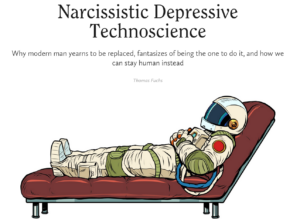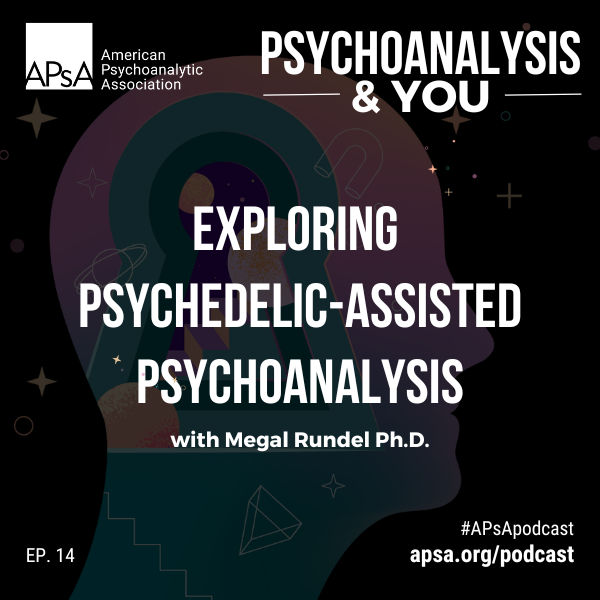Useful Reads | Narcissistic Depressive Technoscience
Useful Reads
A recurring feature offering a brief overview or review of a recent publication, article or book at the intersection of psychoanalysis and AI
Narcissistic Depressive Technoscience
by Thomas Fuchs
The New Atlantis, Spring 2024
https://www.thenewatlantis.com/publications/narcissistic-depressive-technoscience
By Todd Essig, PhD [with computational ‘collaboration’ from Claude]

Narcissistic Depressive Technoscience | Thomas Fuchs | The New Atlantis | Spring 2024
Are we making machines that really are, or soon will be, better than us? Or are we degrading what it means to be human so that we can see ourselves in the mirror of the machines we make.
Thomas Fuchs’s article “Narcissistic Depressive Technoscience” probes contemporary society’s relationship with technology, particularly artificial intelligence, using both psychoanalytic theory and phenomenology. He argues that our current technological zeitgeist is characterized by a collective narcissistic structure, oscillating between grandiose fantasies of technological omnipotence and deep-seated feelings of insignificance. This dynamic, he posits, leads to a paradoxical situation of deep ambivalence where humans increasingly idealize their technological creations while simultaneously devaluing their own embodied existence.
In a broad survey of intellectual history, Fuchs uses both philosophical and psychoanalytic concepts to trace the roots of this ambivalence and its manifestation in contemporary transhumanist and posthumanist discourses. He critically engages with other influential thinkers to challenge the notion that human beings are reducible to algorithms while questioning the ethical implications of such views. In response to these challenges, Fuchs proposes a “new embodied humanism” that emphasizes the irreducible importance of our physical, sensory, and relational existence.
The article concludes by outlining the principles of his embodied humanism, including a renewed appreciation for the lived body, the importance of physical presence in human relationships, and recognition of our fundamental interconnectedness with all living beings. Fuchs’s work intersects with and builds upon the ideas of Erich Fromm and others to offer a life-affirming perspective that is both a critique of current technological trends and a call for a more grounded approach to human existence in the age of artificial intelligence. It’s a multifaceted and thought-provoking contribution to debates at the intersection of psychoanalysis with the accelerating AI revolution.






